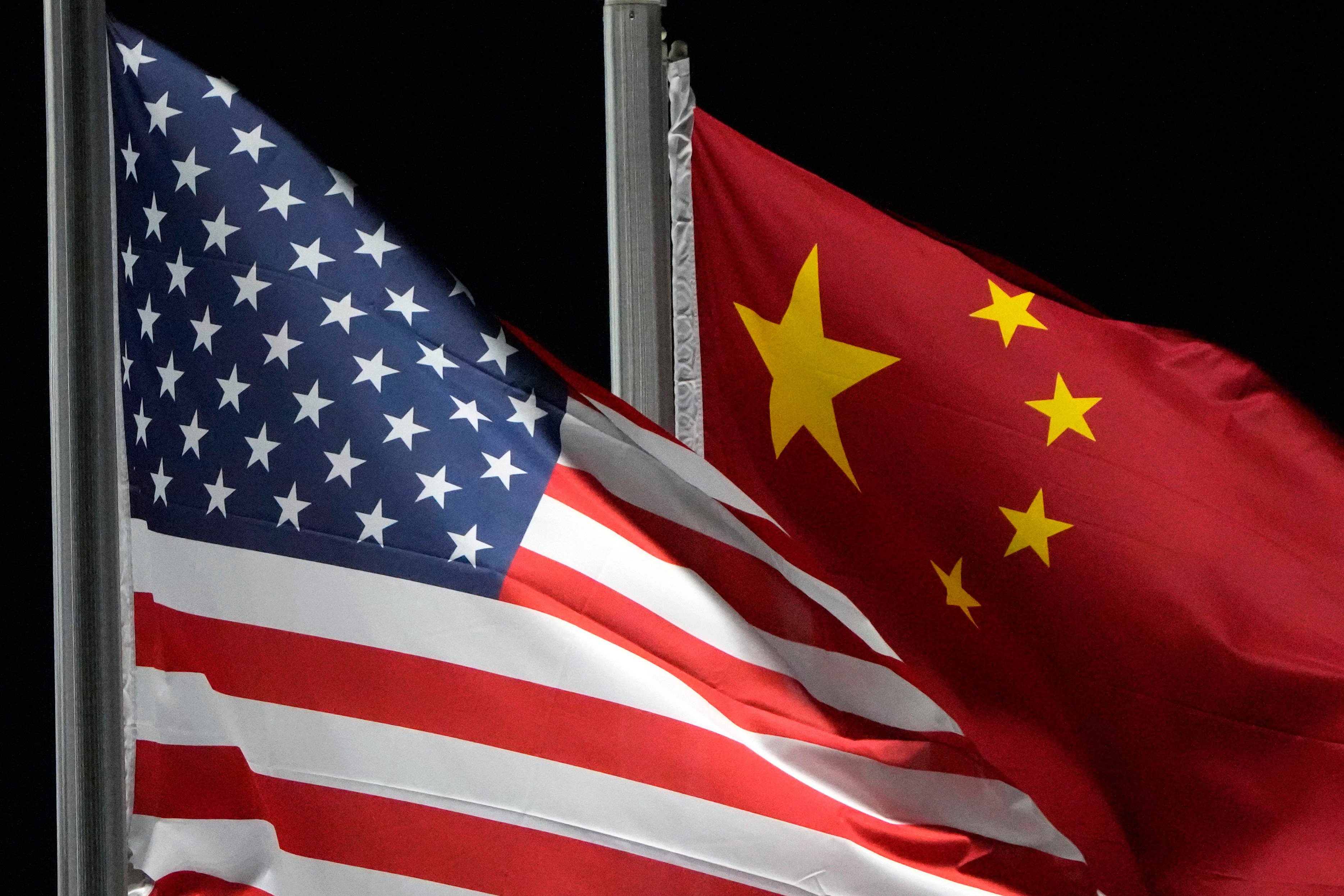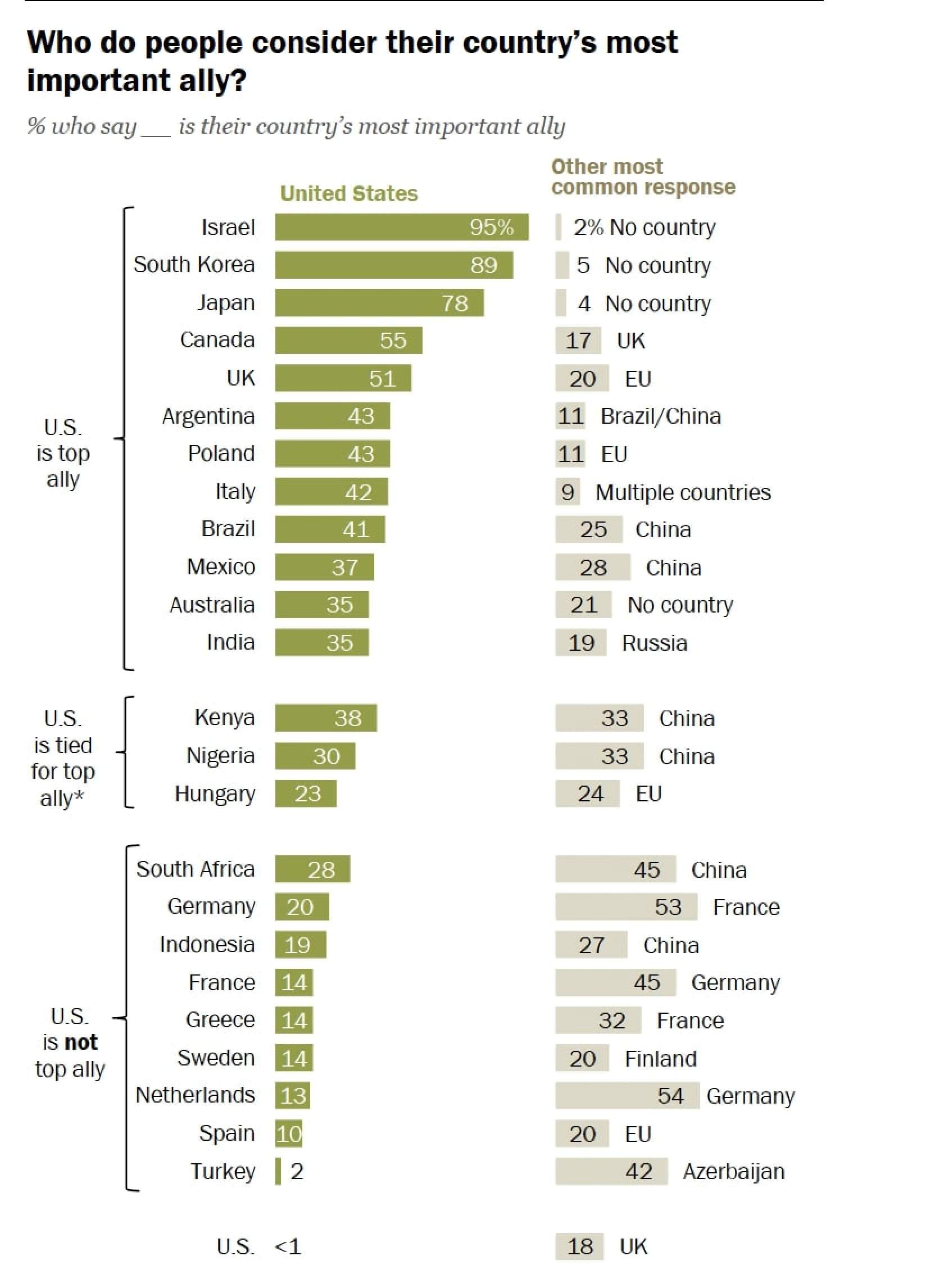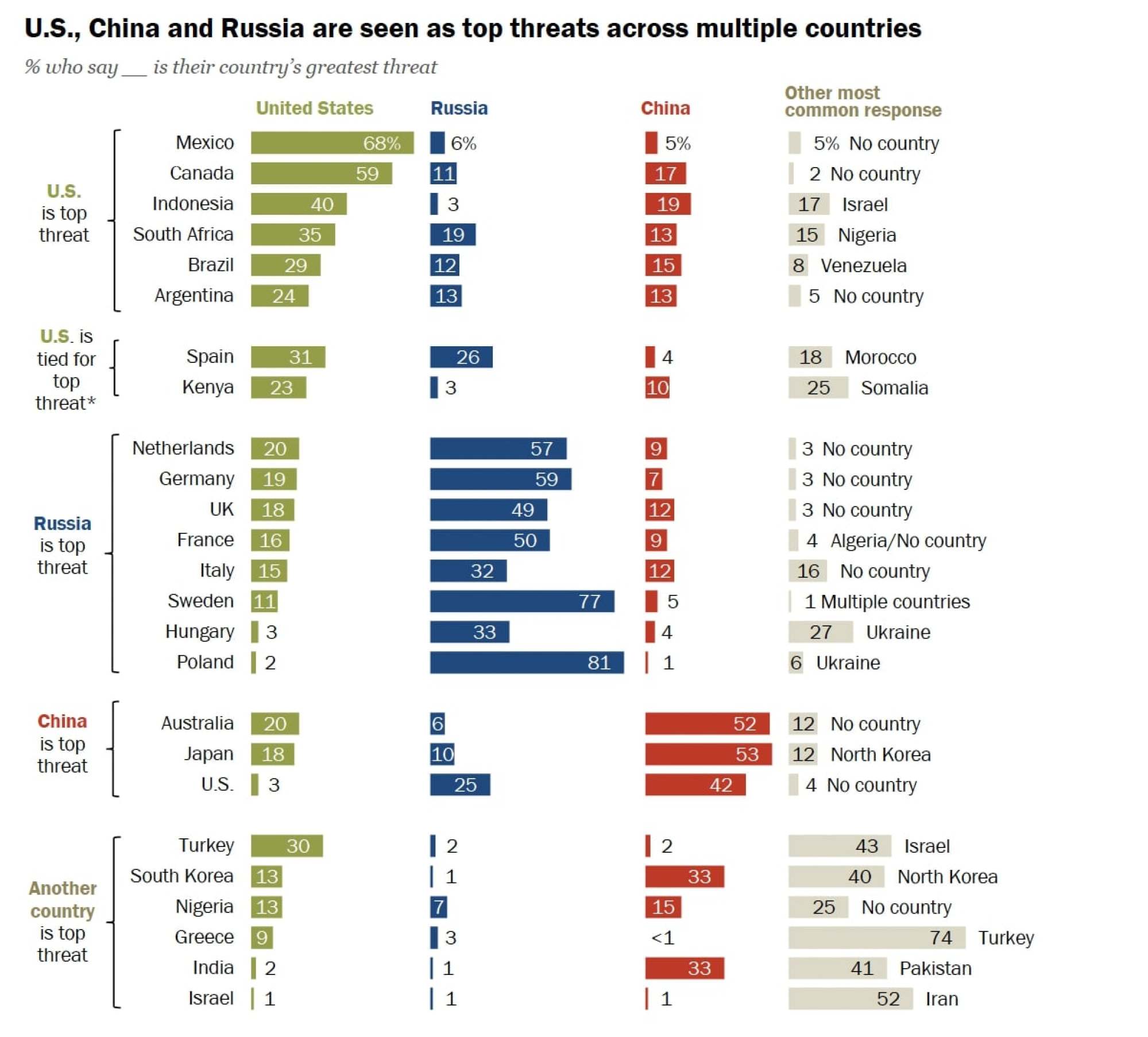In global survey, US cited more often than China as greatest ally and threat
Pew Research worldwide poll of nearly 40,000 respondents finds 15 of 24 nations citing US as top ally while China is named by four

A new survey of citizens in 25 middle- and high-income countries has found that the US is more likely than China to be seen as their most important ally – and their greatest threat.
In the survey it released on Tuesday, the Pew Research Centre polled nearly 40,000 adults from the world’s six populated continents – including those in the US and the four Asian nations of India, Indonesia, Japan and South Korea – between January 8 and April 26.
Respondents were not given a list of countries from which to choose; instead, they were asked to name allies and threats that came to mind.
In Canada, Indonesia, South Africa and five other countries, the US was the most commonly mentioned threat.
By contrast, China was seen as the top threat by a plurality of respondents in just three countries: the US, Australia and Japan.
But respondents in some countries, including Brazil, Canada and Mexico, cited the US as both top threat and top ally.
“Proximity and historical conflict both seem to play an important role in which countries people see as significant threats to their own,” Pew researchers Laura Clancy, Janell Fetterolf and Jordan Lippert said in the report.

The nature of perceived threats from the US and China is also different. Those who saw the US as their country’s greatest threat were more likely to view it as an economic challenge than a security risk.
The situation was more mixed for China.
Americans and South Koreans were equally likely to label China as an economic threat and a security threat. Italians and Nigerians were more likely to say China threatened their economy rather than national security.
Japan was the only country where respondents were more likely to see China as a security threat.
The survey comes as US President Donald Trump’s administration hikes tariffs on traditional US allies like South Korea and Japan, scales back investments in soft power globally and calls into question security guarantees for members of the North Atlantic Treaty Organisation.
Unhandled type: inline-plus-widget {“type”:”inline-plus-widget”}
Since his second term began in January, Trump has also floated the idea of taking over Canada and Greenland, spurring waves of political backlash abroad.
The US was named the top ally more often than any other country in the poll, with respondents in 15 of the 24 non-US nations choosing it – including three where it tied with another country for the top spot.
It is second to Russia as the most common response for the top threat. Russia was cited as the top threat in eight countries – all European – and tied with the US in Spain.
Respondents from three of the four Asian countries considered the US their top ally, with Indonesians regarding Washington as their second most important ally, after China.
Forty per cent of respondents from Indonesia, which is not a US treaty ally, named the US as the greatest threat – more than twice the 19 per cent who named China.
Respondents in Japan and South Korea, both US treaty allies, overwhelmingly named the US as their most important ally, at 89 per cent and 78 per cent respectively.
Still, Japanese respondents cited the US as its No 2 threat after China, with 18 per cent of respondents naming it as their top concern.
China was named the top ally by a plurality of respondents in just four countries – South Africa in addition to Indonesia, and tied with the US among Kenyans and Nigerians.
Perceptions of China as the top threat are strongest in Australia and Japan, where 52 per cent and 53 per cent of respondents, respectively, ranked it first.

China is the top-ranked threat for 42 per cent of Americans surveyed, though views differ by political party. Republicans were more likely to name China, while Democrats were more inclined to regard Russia as the greater threat.
Views of both China and the US have changed over time. Since 2019 – the last time Pew surveyed a similar group of countries – the share of Canadians naming the US as their country’s greatest threat has almost tripled, to 59 per cent from 20 per cent.
In Turkey and Argentina, however, perceptions of the US as a threat have declined significantly – dropping from 46 to 30 per cent in Turkey, and from 40 to 24 per cent in Argentina.
On the other hand, the share of Canadians who called China the leading threat has fallen by 15 percentage points since 2019. But the proportion of Indians who named China as their greatest threat has risen by 16 percentage points over the same period.